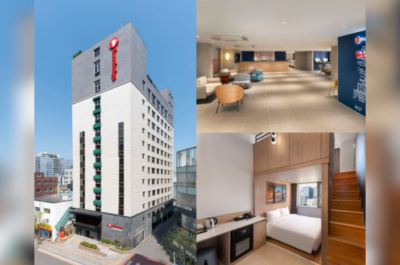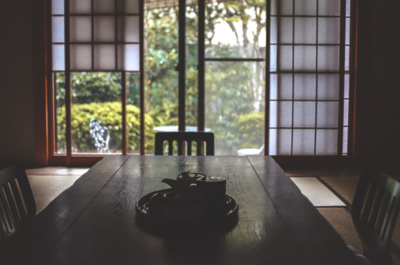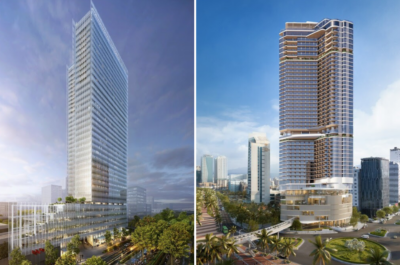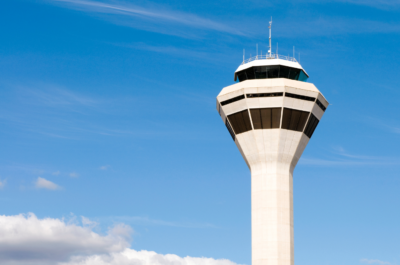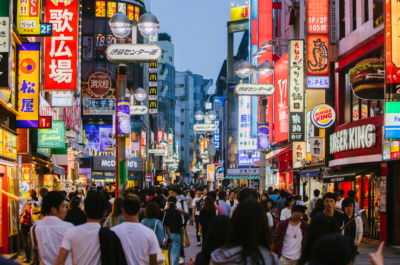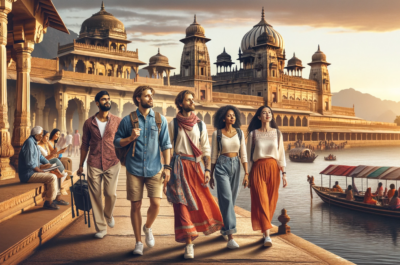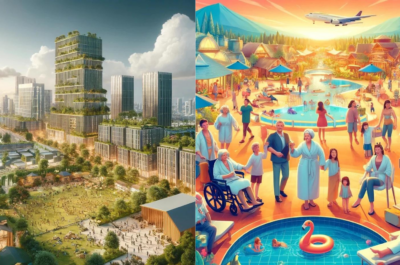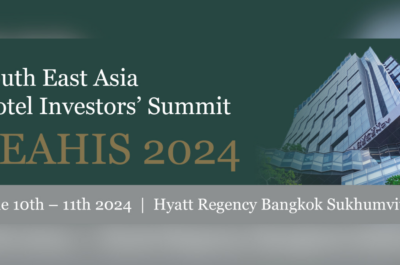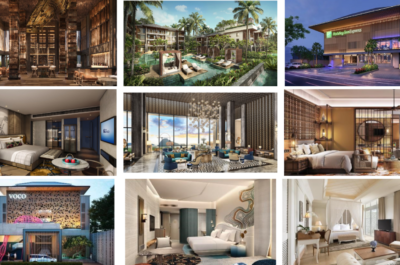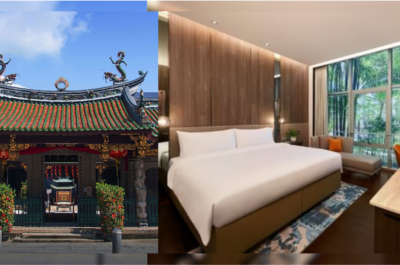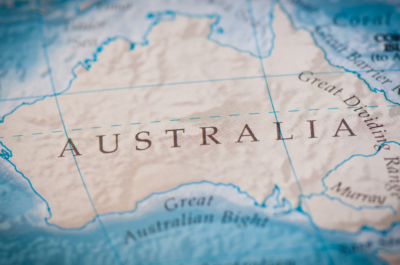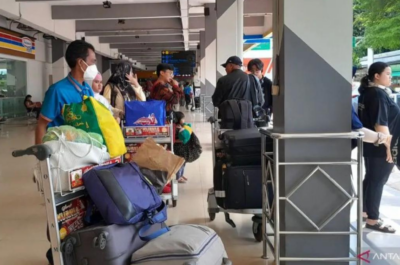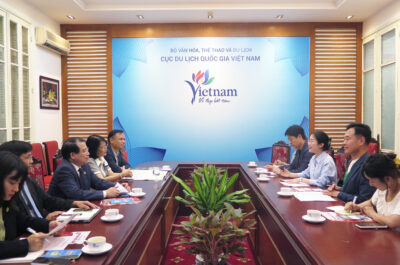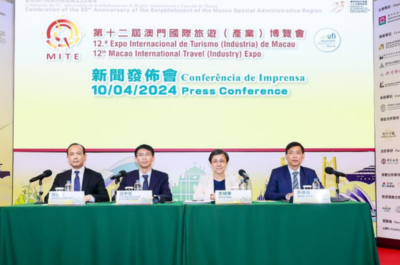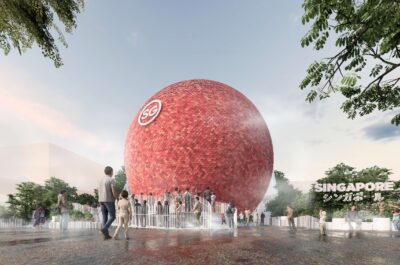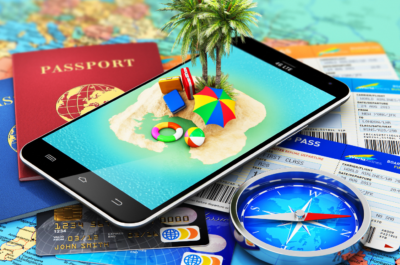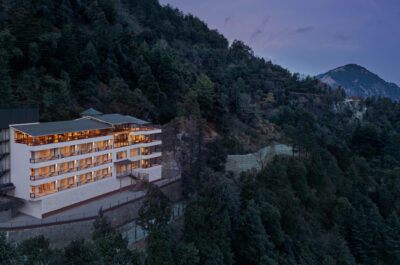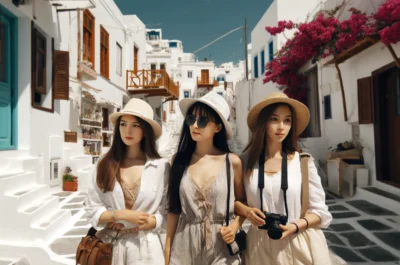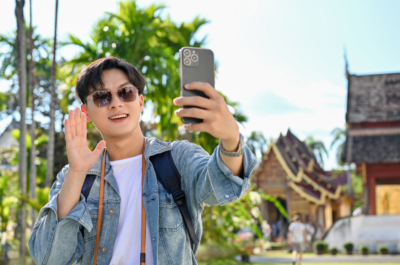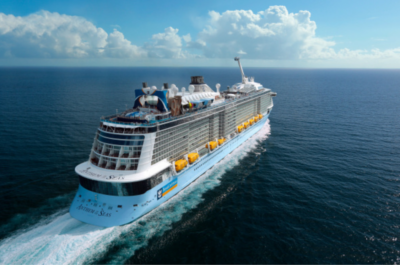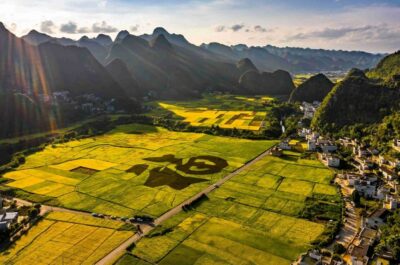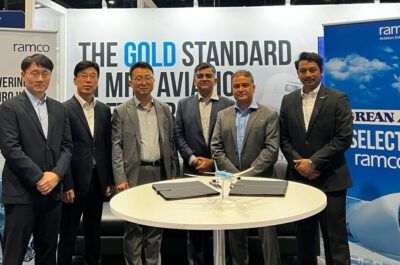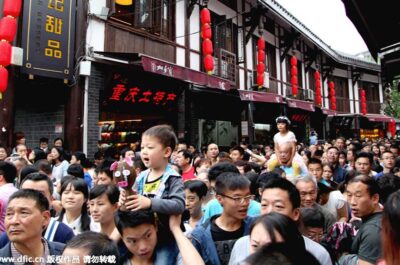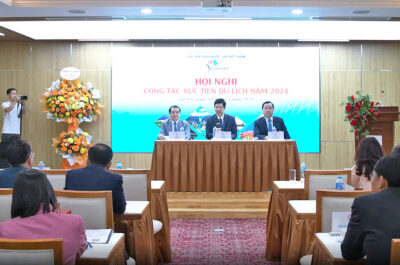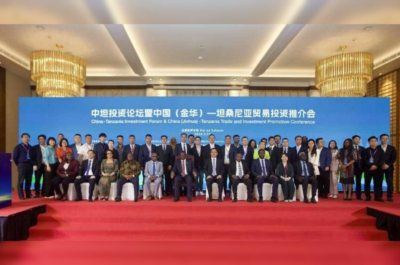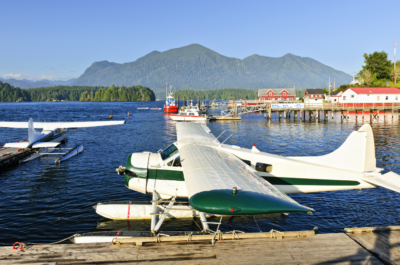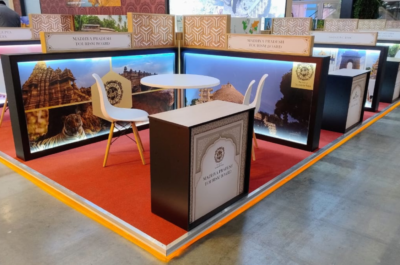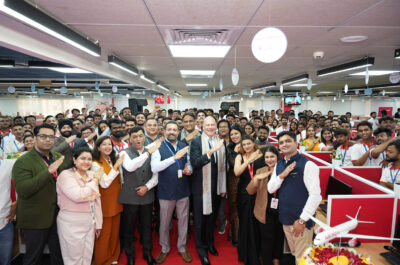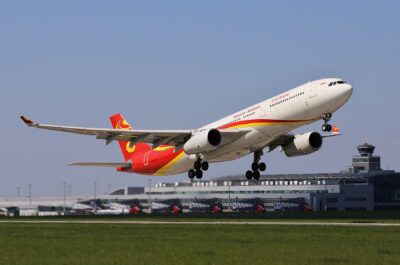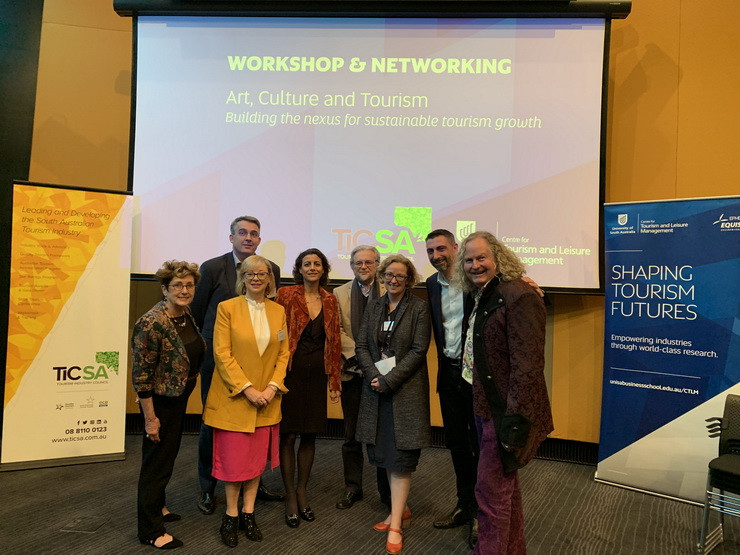
An industry workshop and talk about “Art, Culture and Tourism: building the nexus for sustainable tourism growth” were brought together by the Centre of Tourism & Leisure Management (CTLM), University of South Australia, and the Tourism Industry Council of South Australian (TiCSA).
Many brilliant ideas and co-operations can be generated when academia and industry meets together to share knowledge and expertise. The Centre of Tourism & Leisure Management (CTLM) of the University of South Australia teamed up with the Tourism Industry Council of South Australian (TiCSA) for delivering a highly successful, interactive and edutainment industry workshop and networking event on “Art, Culture and Tourism: building the nexus for sustainable tourism growth”. Shaun de Bruyn (Chief Executive Officer, TiCSA) has been very supportive and instrumental in building industry collaborations with academia and this is the second year that TicSA partners with CTLM to produce an excellent industry event. Professor Marianna Sigala (Director of the CTLM, University of South Australia, UniSA) stressed that tourism research and education has always been a priority for the University of South Australia with a mindset to produce cutting-edge research with end-user impact and graduates ready to address industry challenges. Some recent achievements highlight the UniSA’s commitment to tourism education and research: based on the 2019 Global Ranking of Academic Subjects (GRAS) (produced by the Shanghai Ranking’s Academic Ranking of World Universities, ARWU), the Hospitality and Tourism Management programme of the UniSA Business School is ranked 21st in the world (climbing up from the 25th international position in 2018) and 4th in Australia. UniSA also increased its ERA ranking (Australian Research Council) for tourism research from a 3 star (2018) to a 4 star (2019). “This outstanding performance is a great recognition and award for the hard work and research commitment of the CTLM members”, Professor Marianna Sigala said.
More than 100 tourism industry professionals and researchers attended the event, which took place at the University of South Australia, Adelaide, on the 25th July 2019. The event featured 11 academic and professional speakers, all international experts in their field. The workshop aimed to investigate how to build healthy synergies between art, culture and tourism for driving sustainable tourism development. Achieving sustainability through art, culture and events is critically important nowadays given the increasing concerns and problems of overtourism, climate change, loss of authenticity and commercialisation of culture, the urgency to build creativity into destination and contribute to all stakeholders’ financial but also socio-cultural well-being. To address the issue of sustainable growth, the programme of the event was structured into three major sections each one addressing an interesting question.
The first section included two presentations discussing issues relating to “Create an eventful destination: critical success factors”. In their talk titled “Growing the visitor economy through arts events”, Dr Sunny Lee & Dr Chris Krolikowski (School of Management, University of South Australia) explained the role of arts events in branding, promoting and developing destinations as well as creating a sense of place. The latter is critically important for supporting the generation of positive socio-cultural impacts from arts events. Dr Lee and Dr Krolikowski also stressed the need to evaluate arts events based on a balanced view (i.e. economic, socio-cultural and environmental indicators) and from a multi-stakeholder perspective (specifically the art, creative professionals, which are usually disadvantaged or ignored). Professor Ruth Rentschler & Dr Boram Lee (School of Management, University of South Australia) provided numerous suggestions on how to “Creating synergies between arts festivals and tourism: collaborative or competitive policies for South Australia?”. According to Prof Rentschler, to maximise the cultural, social and economic potential, there is a need to have a robust and appropriate cultural policy platform that is based on cross-party, inter-departmental, inter-government, and inter-agency commitment.
The second section included four inspiring presentations focusing on the topic “Performing Art in Tourism: a way to transformational and creative tourism”. Presentations provided research and practical evidence on how to valorise the affordances of art and cultural resources for designing transformational experiences that appeal to the new sophisticated generation of travellers who are seeking self-developmental ‘consumption’ opportunities to satisfy higher order than solely biological and/or hedonic needs. In her presentation titled “Art as a Serious Business: best practices for designing transformational tourism experiences” Professor Marianna Sigala (School of Management, University of South Australia) provided various examples of destinations and tourism companies using art for designing transformational experiences that inspire tourists’ behavioural, cognitive and spiritual engagement and enable them to gain experiential value that goes beyond aesthetic and hedonic benefits to also include re-thinking and re-setting of people’s values, mindsets and lifestyles. Industry examples using art for generating business and customer value were categorised into: art to be commodified; art to be consumed; art to be co-created; and art as a catalyst of the mind.
Chester Osborn (Chief Winemaker & Viticulturalist, d’Arenberg) further elaborated on the topic by providing a triggering presentation explaining the service design concept of The Cube (the iconic cellar door at McLaren Valley) that uses various arts-based projects (e.g. The Dali exhibition, cooking masterclasses, the Alternate realities museum) to provide a multi-sensorial and fully immersive experience into wine culture and lifestyles. In his presentation “Pig Farming. Attracting people in the year of the Pig”, Chester Osborn revealed several business tips on how The Cube provides a memorable and a life-changing experience to its visitors.
Brian Parkes (CEO, JamFactory) provided an interesting perspective showing how building synergies and collaborations between the art, tourism and wine sectors can develop appealing and holistic tourism experiences that in turn can contribute not only to the tourists’ well-being but also to the local communities and artists. In his talk titled “JamFactory at Seppeltsfield – Connecting art & design with food & Wine”, Brian Parkes presented the business model, the transformational tourism experiences and the achievements of the cooperation between the JamFactory and Seppeltsfield, a multi-award winning winery at Barossa, SA. Kristin Alford, (Director, Museum of Discovery, MOD) provided another inspiring presentation explaining how art can be used to provoke creative and controversial thinking, enabling its ‘consumers’ to re-think of them-selves, their social values, understandings and stereotypes and so, re-set and uplift their well-being. Kristin Alford’s presentation was based on examples showing how MOD (the Australia’s leading future-based museum) synergises art, technology and story-telling for providing transformational opportunities and experiences to its visitors. In her presentation titled “A year of MOD. Reflecting on transformational visitor experiences”, Kristin Alford explained the major principles that MOD uses to design its experiences, namely: two-way minded; sustainable for life; open and open ended; connected to research and enterprise; accessible and inclusive; participatory; for one and many; and unexpected and audacious.
The last section of the workshop included three presentations addressing the theme of “Events for tourism: is it worth it?”. First, Belinda Redman (Deputy Director, Adelaide Fringe) gave an overview of the design and the impacts of the Adelaide Fringe festival providing an evidence on how this worldwide event generates benefits to: the tourism economy; the local communities; the artists; and regional Australia by spreading Adelaide Fringe’s events within South Australia. In her talk titled “60 years on, where to now? – Arts Festivals in South Australia”, Belinda Redman also emphasised the ability of arts events to attract international visitors to the state. In his talk titled “UNESCO Creative Cities – the Asia Connection”, Douglas Gautier (CEO & Artistic Director, Adelaide Festival Centre) discussed the importance of Adelaide being one of the four Australian cities being part of the Unesco Creative Cities of the Asia-Pacific. Some of the major benefits include: greater destination awareness, promotion and branding; cultural diplomacy; building links with the Asia region; access to best practices and know-how; international collaborations; and access to artists. Adelaide participates in the Unesco Creative Cities of the Asia-Pacific as the City of Music since 2015. The designation as a City of Music acknowledges the breadth, depth and vibrancy of Adelaide’s music culture and it is one of the feathers in Adelaide’s cap and a unique selling point to investors, tourists and business visitors. Adelaide is proud to be hosting the Asia-Pacific Creative Cities Conference in October 2019. Lastly,
Lisa Bishop (CEO, Music SA) analysed the conceptualisation and evolution of the music festival “Umbrella Winter City Sounds”. In her talk titled “Umbrella Winter City Sounds – growing a live music festival for Adelaide as a UNESCO city of music”, Lisa Bishop provided evidence how this event has contributed to: addressing seasonality by developing an international well-known event during the winter off-season; spreading out events’ benefits to regional Australia by engaging venues and artists all around South Australia; building social capacity and creative dynamism by adopting a button-up community-based approach in designing and executing the music event; and building co-operations with other festivals (e.g. Adelaide Fringe) to increase promotion and destination branding/visibility.
The workshop finished with a Grand Debate “Art, culture and tourism: a love & hate or a symbiotic relationship?”, whereby the workshop speakers and audience had the opportunity to further elaborate and discuss issues related to two questions:
- What are our strengths and/or weaknesses in building collaborations between art, culture and tourism in Adelaide, South Australia?
- Does the way we manage our art/culture events contribute to a sustainable tourism development? What do we do well and what we need to improve?
The day concluded with a TicSA Talking Tourism networking event featuring a distinguished speaker with numerous years of experience in the events, festivals and cultural tourism.
Christie Anthoney (CEO, Festivals Adelaide) was the honoured speaker of the TiCSA Talking Tourism event. In her talk titled “Festivals: South Australia leads the nation and there are good reasons why….”, Christie Anthoney gave an overview of all the 11 festivals taking place in Adelaide giving justice to the naming of South Australia as the Festival State. Christie Anthoney provided evidence of the impact of the festivals to the tourism economy, local communities and artists alike. Festivals provide numerous and interesting international career opportunities and paths and they significantly contribute to job creation in the state. Given that, Christie Anthoney was also pleased to announce the introduction of the new degree programme on festival management introduced by UniSA in 2020.
The event finished with a very positive vibe and fruitful ideas on how to proceed further and build stronger and win-win collaborations between the tourism, art and cultural sectors. Professor Marianna Sigala (School of Management, University of South Australia) closed the event by thanking all presenters and participants, while she announced the preparations of another two industry events to be organised by the CTLM in September and November 2019; official announcements of the events will be promoted shortly. Participants expressed their highest satisfaction and enjoyed a networking social event with food, wine and drinks sponsored by: Jacobs’ Creek, Bickfords, Pirate Life brewing.
Vicky is the co-founder of TravelDailyNews Media Network where she is the Editor-in Chief. She is also responsible for the daily operation and the financial policy. She holds a Bachelor's degree in Tourism Business Administration from the Technical University of Athens and a Master in Business Administration (MBA) from the University of Wales. She has many years of both academic and industrial experience within the travel industry. She has written/edited numerous articles in various tourism magazines.





























